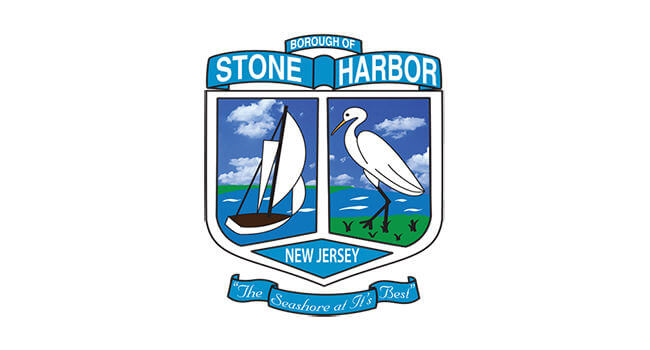STONE HARBOR – At its Feb. 7 meeting, Stone Harbor Borough Council heard that its Community Rating System (CRS) score will drop from a level 5 to a level 7, as of April 1, 2023.
The decrease in the CRS rating will lower the flood insurance discount for property owners in the borough.
At level 5, properties in the National Flood Insurance Program (NFIP) are entitled to a 25% discount on premiums. At level 7, the discount is only 15%.
The CRS program awards points based on a series of actions taken by a participating municipality that address floodplain management practices that exceed those set as a minimum for participation in the NFIP.
The point level necessary to maintain the borough’s level 5 rating was placed in jeopardy by the loss of 915 points that had been given by the Federal Emergency Management Agency (FEMA) in 2013 following the destruction caused by Superstorm Sandy.
At that time, FEMA used the awarded points to encourage communities to adopt Advisory Base Flood Elevation Maps. The points had a known 10-year lifespan.
Stone Harbor is now hiring a consultant to help identify areas where it can gain back CRS points, but the effort may not pay off in time to avoid at least a temporary loss of rating level. The borough is scheduled for a five-year review with FEMA in September.
At the council meeting, former Mayor Suzanne Walters used public comment to criticize the borough for not acting sooner in order to head off the loss in premium discount.
Walters was mayor when the points were awarded and for the first years of the 10-year period. Judith Davies-Dunhour defeated Walters in the Republican primary election in 2016, went on to win the general election and took office as mayor in 2017.
Stone Harbor uses a partisan form of government where the primaries are often more important than the general election.
Walters pointed to the level 3 status of neighboring Avalon, a score that earns that borough’s property owners a 35% discount in the NFIP.
At the same meeting, Councilwoman Jennifer Gensemer, new chair of the council committee on administration and finance, promised that the CRS issue would be a priority for her committee, with a report to the public each month. She set a goal of achieving a 4, or even a 3, rating for the borough.
She asserted that the borough is “unprepared” for its five-year review in September.
She added that about 2,500 properties in the borough are part of the NFIP.
In January, the borough appointed its construction official, Ray Poudrier, as its new CRS coordinator. Poudrier is already the community’s flood plan manager.
The loss of the CRS points comes at a time when some property owners in the borough were facing higher premiums anyway due to FEMA’s adoption of a new premium-setting methodology known as Rating System 2.0.
The CRS consulting contract is being awarded to DeBlasio & Associates, the firm that already serves as municipal engineer for the borough.
Two days after the Feb. 7 meeting, the council held a special meeting, at which it fired Borough Administrator Robert Smith, effective immediately. There was no discussion at the special meeting as to what impact the CRS situation had in the minds of those council members who voted to remove Smith.
How the borough will structure its operational leadership roles while a replacement administrator is sought is not yet clear.
Davies-Dunhour is meeting with department heads who had no advanced knowledge of Smith’s removal. Two of those department heads are new to the borough, having been hired in 2022.
Thoughts? Questions? Contact the author, Vince Conti, at vconti@cmcherald.com.








